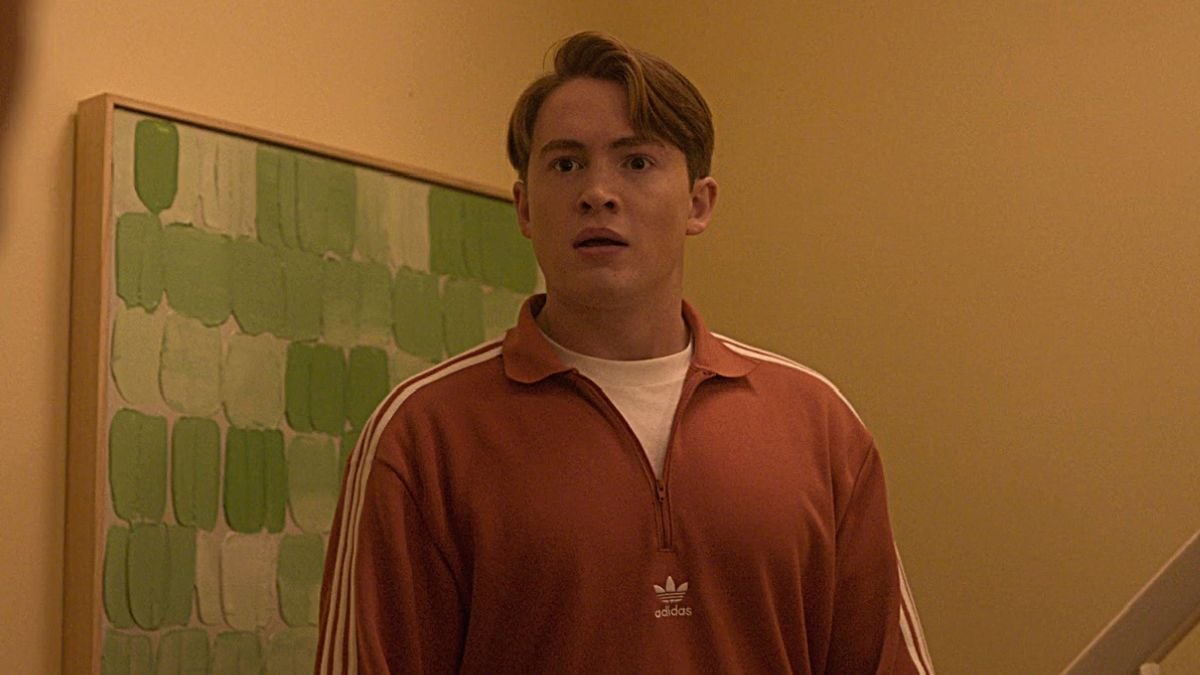The second season of teen LGBT+ show Heartstopper has been sitting comfortably in the top spots of the Netflix charts since its premiere last Thursday, Aug. 3. Following the success of the first outing, the new episodes delve deeper into the lives of the core characters, particularly Charlie (Joe Locke)’s boyfriend Nick Nelson (Kit Connor).
The two boys got together in the first season, leading Nick to realize and come to terms with the fact that he’s attracted to his own gender, as well as others. But Heartstopper‘s true victory is its understanding that that realization is only the first step in the long road that is life as an out queer person. Season two follows Nick’s coming out journey, as he battles with both wanting to make Charlie proud and facing his fears.
As a bisexual man, however, Nick’s sexuality is constantly misconstrued, even after he comes out, and the result is an experience that any bi viewer will recognize all too well. One of the character’s most iconic lines in the graphic novel by Alice Oseman that the series takes from is “I’m bi, actually.” This is heard repeatedly across season two because Nick keeps having to correct people after they (realistically) assume that he’s gay whenever he opens up about his relationship with Charlie.
The repetition has been perceived as excessive and cringeworthy by some audiences, causing a divide between them and those who appreciate its necessity and authenticity. One particular TikTok video which has been making the rounds online, and whose creators have since apologized for, mocks Nick’s catchphrase and deems it “too much.”
Here’s the thing, though. Bisexuality isn’t inherently visible, the same way heterosexuality and homosexuality might be. Those who are in a relationship with the opposite gender are often accused of lying about their attraction to the same gender in order to feel special, quirky, and part of the community. Meanwhile, if you’re in a relationship with the same gender, it might be seen as a stepping stone in your way to fully come out of the closet as gay — as if you’re still halfway in denial.
As a fictional bisexual character, Nick perfectly represents this struggle. He fits the societal mold of a heterosexual man when he’s introduced in the first season as a popular, stereotypically attractive rugby player, and everyone, including Charlie and his mostly queer friend group, assumes he’s straight. Moving on to the second season as he gradually reveals to his family and schoolmates that he’s dating a guy, and everyone instantly jumps the gun in labeling him gay. That’s why that one sentence is so important: repetition and redundancy are unfortunately needed to get your point across to those less willing to truly listen.
Yes, Nick constantly has to remind everyone he’s bi, but unless you’re okay with settling for your sexual identity being misunderstood, that is a true-to-life representation of the bisexual experience. It can be quite frustrating when a part of you keeps being erased depending on who you might be romantically involved with at a given time. Nick’s relentless refusal to let that happen is the best gift Heartstopper could give to its young bisexual viewership, and as someone who did not have that growing up, I’m impossibly happy that that’s now the standard being set for the new generation of LGBT+ teenagers.

